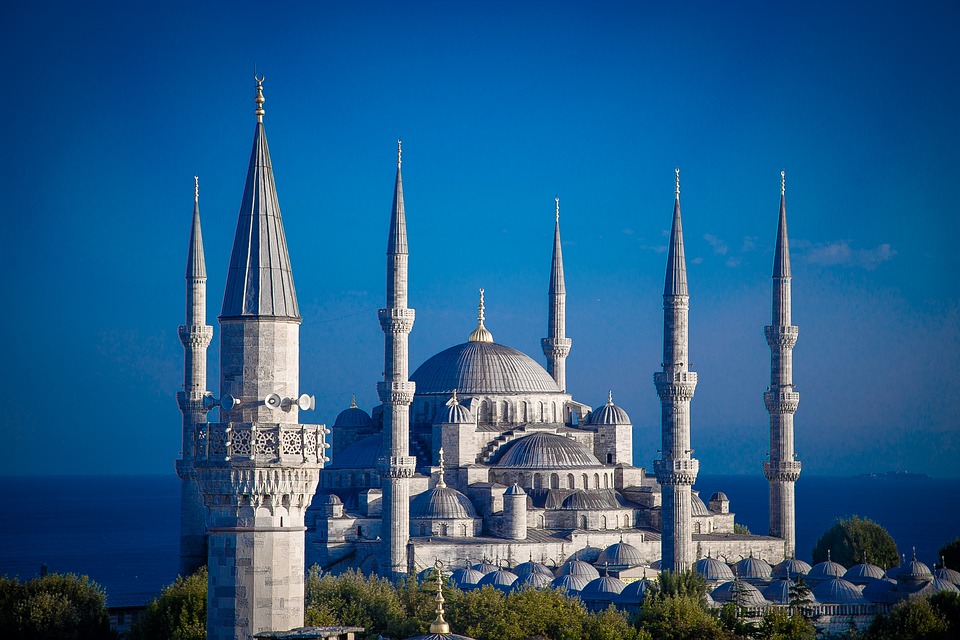The co-rapporteurs for the monitoring of Turkey by the Parliamentary Assembly of the Council of Europe (PACE), Marianne Mikko (Estonia, SOC) and Nigel Evans (United Kingdom, EC), have expressed serious concern over the deterioration of the situation in Turkey ahead of the forthcoming 2019 elections. Speaking at the end of a fact-finding visit to the country from 28 to 30 March 2018, they said:
“The failed coup, two years ago, caused a trauma in society and Turkey had a legitimate right to defend the democratic order. Two years later, however, we regret that the state of emergency has been unnecessarily prolonged six times, allowing a resort to disproportionate measures, including massive dismissals of officials and numerous closures of media and civil society associations. The Turkish Government would send a strong and welcome signal that it is not turning its back on democratic norms if it were to indicate, as soon as possible, a transition process from the state of emergency to the previous situation.
We welcome the work initiated by the Commission of Inquiry to review applications made by dismissed officials, thus paving the way for judicial remedies. However this process has so far enabled few applicants to be reinstated, and in the meantime leaves thousands of others jobless, stigmatised and banned from travelling while they await the completion of judicial procedures which will take time.
We are also very concerned at the continued violations of freedom of expression and the media, as well as freedom of assembly, highlighted by the Assembly in its last resolution, which have unfortunately sharpened following the Turkish military intervention in Syria in January 2018. While it is legitimate for Turkey to address its security issues, this should not be at the cost of democratic freedoms. As highlighted by the European Court of Human Rights, criticism of political leaders or government policies should not attract criminal, terrorism-related charges – and pre-trial detention should only be used as an exceptional measure of last resort. We therefore urge the authorities to find the proper balance between security and democracy, and ensure that all voices, even when dissenting, can be heard. Any restriction must be strictly necessary and proportional to the situation, in line with the case-law of the Strasbourg Court.
In this context, freedom of political debate – a cornerstone of any democracy – will be essential if diverging views are to be debated in a highly polarised society and compromises are to be found. The continued detention of members of parliament, journalists, academics, students and human rights defenders has had a chilling effect on society, which we were able to sense during our visit. The recent sale of the Dogan Media Group and the adoption of Law No. 6112 on internet services could further endanger media pluralism. We thus invite the Turkish authorities to create opportunities and take meaningful steps to restore and safeguard the values of a democratic society, such as pluralism, tolerance and broadmindedness, in which the Council of Europe stands ready to help.
These steps will be crucial at a time when Turkey is preparing for key local, parliamentary and presidential elections to be held in 2019 – the final steps in the establishment of a presidential system which was backed by 52 per cent of voters in a constitutional referendum. Opposition parties shared with us their deep concerns about the newly adopted electoral law, which has been challenged before the Constitutional Court. We were told that in its current version, this law could further undermine the preparation and conduct of free and fair elections due to several controversial provisions related to election security. This is an issue we will be looking at closely to ensure that elections in Turkey are held in line with European standards. We expect assurances to be given that elections will be free and fair, and are seen to be so.
We hope that the Turkish authorities will be ready to engage in a genuine and meaningful dialogue over these issues, and other issues of concern in the fields of democracy, human rights and the rule of law. By doing so, the authorities would reiterate their commitment to Council of Europe values. They would also live up to the expectations of the people of Turkey, who have demonstrated their deep attachment to democracy by taking to the streets during the failed coup. Turkey and the Council of Europe should remain ready to continue their co-operation and to work out durable solutions which uphold our common values, encompassing both democracy and security.”
During their visit, the co-rapporteurs met the President of the Turkish Grand National Assembly, representatives of the Ministries of Justice and Internal Affairs, the President and members of the Turkish delegation to PACE, the chairs of parliamentary committees, members of the political groups represented in parliament, the President of the Inquiry Commission on State of Emergency Measures, as well as representatives of NGOs, the media, civil society and the international community.



















































